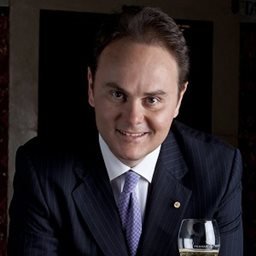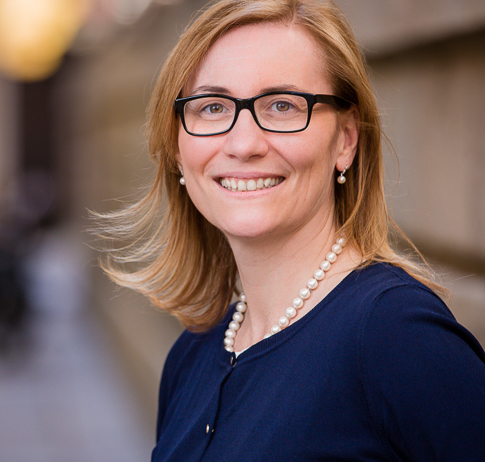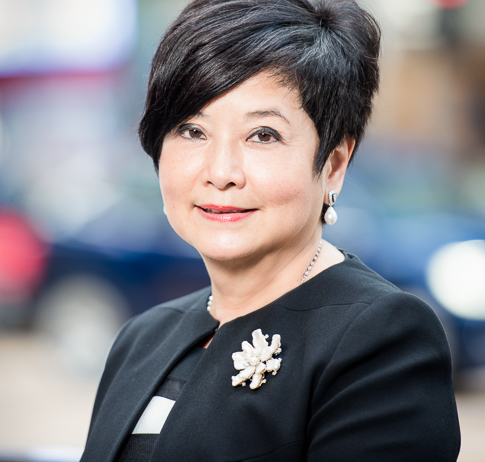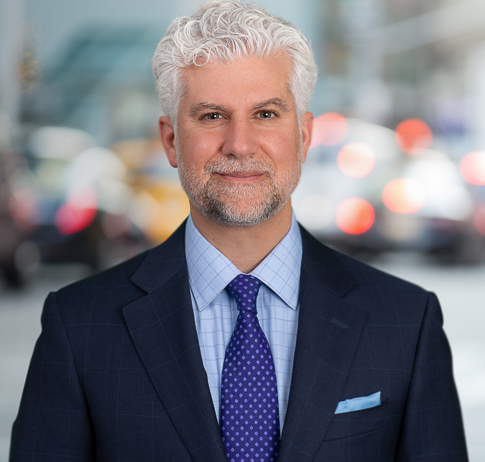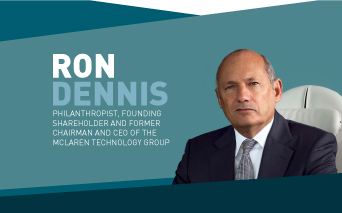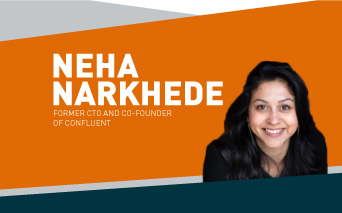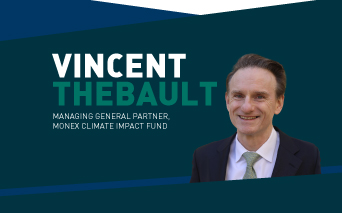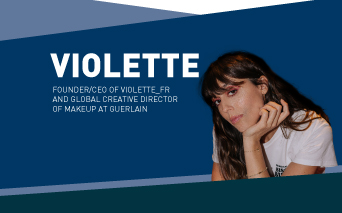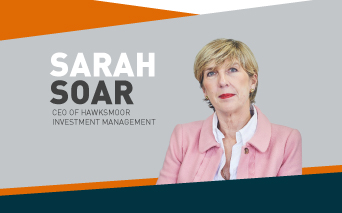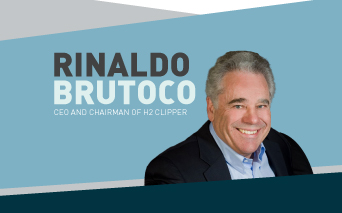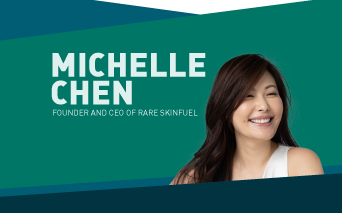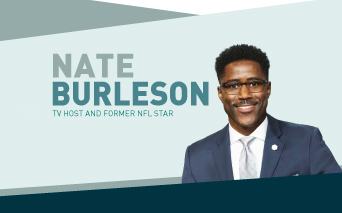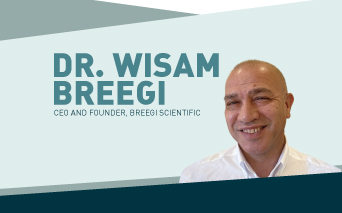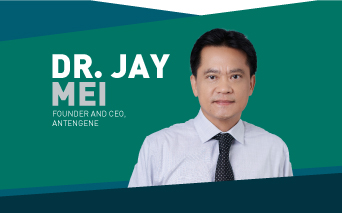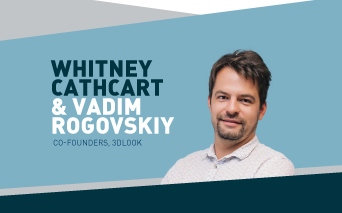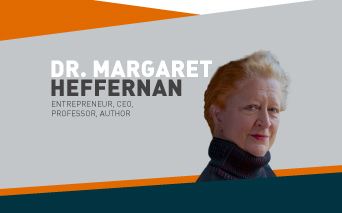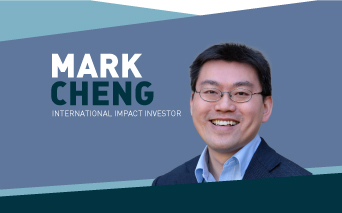Podcast
Matteo Lunelli, CEO of Ferrari Trento and President of Fondazione Altagamma, talks family business, luxury brands and the impact of climate change
21 June 2021 | 24 minute listen
Episode 5 of Talking Success with Aasmah Mir
Aasmah talks to Matteo Lunelli about what makes family businesses unique, how luxury brands are facing social and economic challenges and the importance of attention to detail and trusting your gut in successful business. To hear more stories of success, click here.
Podcast host | Aasmah Mir
Aasmah Mir is an award winning broadcaster and journalist. She currently co-hosts the Breakfast Show on Times Radio and writes a regular column for The Times.
Guest | Matteo Lunelli
Matteo is the President and CEO of Ferrari Winery, Italy’s leading producer of luxury sparkling wines, founded in Trento in 1902, and the President of Surgiva F.lli Lunelli S.p.A., a company which produces a light and exclusive mineral water with its source in the Adamello National Park in Trentino.
Matteo is currently the CEO of the Lunelli group, an Italian beverage group which, along with Ferrari and Surgiva, includes the historic grappa brand Segnana, the Tenute Lunelli still wines (from Trentino, Tuscany and Umbria) and finally Bisol, a historic brand for Prosecco Superiore representing the highest level of quality for wine production in the Valdobbiadene territory. After the acquisition of the Company by the Lunelli Group, Matteo became Vice President of Bisol.
He is 47 years old, he is married and has two children. He graduated with honours in Economics at Bocconi University, Milan and, before joining the family business, he developed his international experience in financial consulting working for five years at Goldman Sachs International in Zurich, London and New York.
Strongly committed to promote the Italian lifestyle, Matteo is President of Fondazione Altagamma, which gathers together famous high-end Italian companies from various sectors in order to promote top-quality Italian industry and the culture of excellence that supports it.
He is passionate about art and from 2014 to 2019 he was Vice Chairman of MART, the Museum of Modern and Contemporary Art of Trento and Rovereto.
In 2016 Matteo was also President of IWSC The International Wine and Spirit Competition. Furthermore he is also a member of the board of the Arnaldo Pomodoro Foundation.
Matteo received important awards such as the “2015 Entrepreneur of the Year Award” in the Family Business category.
Note: We have provided a transcript of the discussion in this podcast if you are unable to listen to the audio version. This transcript is generated using a combination of speech recognition software and human transcribers and may contain errors.
Aasmah Mir (00:02) Welcome to talking success with Aasmah Mir in partnership with Withers, the international law firm.
Whitney Cathcart (00:10) Ultimately what really drives me is actually my children and leading by example
Margaret Heffernan (00:15) How do I use the good things that success has brought me to help other people be successful? I think that’s what really floats my boat.
Jay Mei (00:25) My name is associated with a drug that has been used by tens of thousands of physicians or hundreds of thousands of patients around the world and that is actually greater than any financial return.
Aasmah Mir (00:41) I’m Aasmah Mir and in this series I get to chat to a whole range of successful people, CEOs, entrepreneurs, and leaders in their field. What I want from these conversations is to identify and unpack the crunch points in their careers and their lives. Those crucial moments where a decision or a reaction made all the difference.
Matteo Lunelli (01:02) There is a sentence that I appreciate that says doing what you like is freedom, but liking what you do is happiness.
Aasmah Mir (01:11) Today, I’m speaking to Matteo Lunelli, CEO of the Llanelli Group. Matteo is the third generation to run the family business, which today consists of six different beverage brands, including Ferrari Trento sparkling wine. Matteo is also president of the Altagamma Foundation, a network promoting leading Italian luxury brands. Matteo, thank you so much for joining me.
Matteo Lunelli (01:33) Thanks to you Aasmah for the introduction and thanks to Withers for involving me.
Aasmah Mir (01:38) No problem. I’m sorry if I, if I butchered all those Italian pronunciations, but I’m looking forward to you seeing them beautifully in your Italian accent.
Matteo Lunelli (1:47) They were perfect.
Aasmah Mir (1:48) You’re very kind. Um, I’ve got quite a curious question that I want to start off with. Do you have a saying that you always tell yourself when, even someone like you, when even you need a confidence boost?
Matteo Lunelli (02:03) First of all, you know, when I am facing a challenge or I’m in a difficult moment, you know, I always try also to think about places I love and most of all, people I love. Because I believe, uh, you know, love and passion gives you positive energy. Love and passion make us stronger anytime. When I’m afraid to fail, I say to myself, you know, as a famous, uh, American coach said, uh, you know, it’s not important how many times you fell down or you fall in your life, but it’s important to see how many times you get back up.
Aasmah Mir (02:38) Now, it’s a family business. So, to start off could you tell me how your grandfather started the business?
Matteo Lunelli (02:45) Yeah, actually the man who started the business was Giulio Ferrari, which was not related to my family and it was in 1902. Giulio Ferrari was a pioneer and the first one to really understand the vocation of Trentino and the mountain viticulture. And so he started the production in 1902, a very small production with the idea of creating an excellent sparkling wine in his own region. And then he ran a winery for 50 years. After the second world war since he had no children he had to find somebody who could continue his vision and this is when my grandfather came. You know there were many pretenders who wanted to acquire the winery, but, uh, between these pretenders, he chose my grandfather, Bruno Lunelli as his successor because my grandfather was a wine merchant in Trento, so he was a, he was a client of Giulio Ferrari and he was also promoting the wines in the region.
Matteo Lunelli (03:39) So he knew that my grandfather was the perfect person to really bring on and continue the vision he had and from the meeting of Giulio Ferrari my grandfather probably really started the great growth period of, uh, of our winery, but, uh, always remaining faithful to the principle of the founder. And this is very important because, you know, in 1902 it was not obvious in Trentino the idea to create an excellent sparkling wine, because wine was a part of the normal culture of the farmers. While Giulio Ferrari wanted to create an excellent sparkling wine dedicated to the most exclusive clients in Italy, to the best restaurants in Milan, to the cruising boats around the Mediterranean. So that dream that started with Giulio Ferrari is at the heart of our DNA and I think it’s what we really care, you know, achieving excellence in every detail and making great wines in our region.
Aasmah Mir (04:36) Did you always want to go into the family business? Was that never in any doubt, because you did go off and study economics and then you went into finance before joining the Group? So was that all part of the plan, or were you delaying the decision?
Matteo Lunelli (04:51) The family business has always been part of my life, but I never gave for granted that I would be part of it. It’s a decision that, um, you know, I think matured slowly. After studying at university, it was the end of the 90s and I got graduated at Bacone university. At that time finance was a great place to work and, uh, there were these investment banks presenting themselves in the university. Goldman Sachs was one of them and when I got an offer, I thought it was fantastic. I had the opportunity to go to New York, then moving to Zurich and then again, London, so it was a fantastic experience. You know, it was not obvious for me that I would go back to Trento, but, uh, over time I think and I always kept in touch. At that time my, my uncle Gino Lunelli was uh the precedent of, uh, of, uh, Ferrari Winery and we always were always in touch and exchanging ideas and you know, at a certain stage in a certain moment, he really called me saying Matteo, I think it’s time for you to take a decision. What do you want to do in your life? Do you want to be a manager or you want to be an entrepreneur? Do you want to continue what you’re doing or you want to join the family business and work in the wine industry?
Aasmah Mir (06:06) Now, you’re in the family business now. Can you now with all your kind of years of experience and wisdom see what the pros and cons are of being inside a family business?
Matteo Lunelli (06:20) Yes, you know, like in the wine industry you need to have a long-term horizon. And I think a family business is a very, uh, strong in that. When you plant a vineyard for example, you really need to think, not only long term but really you need to think of the next generation sometimes, because when you plant a vineyard sometimes it takes almost more than 20 years or even 25 years from the time you start thinking about that vineyard to the final outcome of a greater reserve. So you need that this long-term horizon and I think family businesses can do that better than any other company, but in a family business you also face a lot of challenges because you need that really to make sure that the relationship between the company and the family is appropriately, uh, regulated because uh, the company should not serve the family and vice versa.
Matteo Lunelli (07:18) The family should serve the company and in addition, I think the greatest challenge is really to be able to attract talented managers and talented people from outside the family who needs to join the business and share the value and share the passion. You know, when a family business can do that, it’s usually successful in the long run. Otherwise it is a problem. And, uh, I think that it is, um, very important to write the rules and to really establish the rules that, uh, needs to regulate the relationship between the company and the family. Because when you write the rules and in the problem arise, then you can manage it. When a ruler is needed, you cannot write it anymore because the people will start complaining or discussing.
Aasmah Mir (08:05) But when you say rules, do you mean like contracts or do you mean rules?
Matteo Lunelli (08:09) We have decided to write down family bylaws which are just a, it’s a, it’s a formal agreement between all that has been signed by all the members of the family and that regulates what we share as common practices.
Aasmah Mir (08:26) Now you mention challenges early on and of course the last year has been very challenging for businesses, but it must have been especially for a business that places itself, defines itself as, as a luxury brand because of course the thinking is that when people are suffering, the last thing they think of is, is, is luxury, but maybe I’m wrong. How, how has your business coped over the last year and have you had to change anything?
Matteo Lunelli (08:53) Certainly 2000 has been a challenging year and a very difficult year for all of us, not only from a professional point of view, but also from a personal point of view. The luxury goods sector, which I know very well, because as chairman of Altagamma, Foundation Altagamma I share ideas and views with many entrepreneurs in the luxury sector. The luxury sector has been hit by the pandemic very severely because, uh, uh, first of all retail was closed. Conviviality was stopped dramatically and, uh, the tourists completely was blocked. And these three elements are very strong engines for the luxury goods sector. We estimated around the world on average, you know, we added increase of 20% in 2020. Then some sectors have been hit more, some others less. But what we are also witnessing is that this sector is recovering very fast. Obviously it will be stronger depending on the effectiveness of the vaccines to fight the pandemic. It will be, uh, even stronger if the tourism flow will start again and if, as we all hope, the world will open up and, uh, fast, and we will be all back to meeting together, going to restaurants together and being able to cheer together, which is something I really look forward.
Aasmah Mir (10:24) Did you have to make any difficult decisions? I mean, perhaps not you, but perhaps people within the organisation to, I don’t know, to, to change suppliers, to lose people, kind of who were working within the organisation, did you have to get rid of anyone?
Matteo Lunelli (10:38) Luckily not. We had to take a difficult decision, but not about people. Uh and this is something I feel very proud and also lucky, you know, being a leader of a very strong group, we were able to protect our people. And, uh, last year I think we were able to demonstrate a social responsibility towards all our stakeholder. First of all our employee. We are in the food and beverage sector, which in Italy never closed. In addition, you know, the vineyards you cannot leave it, you know, you need to continue to take care of the vineyards so it was impossible to stop completely the activity. So even in the first lockdown, we never stopped our activities. The focus has been at that time to make sure that we were working, but protecting first of all the health of the people working with us. Um, in addition, we were able to demonstrate social responsibility towards our communities. In the wine sector, you know, our wineries are extremely linked, strongly linked to their own land and this is what we have done by making some donation to different hospitals and, uh and different associations that we’re working in the community.
Aasmah Mir (11:56) Hmm, I mean, it definitely sounds like a moment, perhaps, even a defining moment. I wonder though, before 2020, was there another kind of moment in your career or decision that you made that, that did kind of set the tone for the rest of your life? It might’ve been when you were studying, it might’ve been when you were in finance, it might’ve been within the Group, but was there a particular moment that you realised that you were having to make a big, big decision that would have consequences or repercussions, or would set you on a particular path in your own life?
Matteo Lunelli (12:30) So for me, uh, you know, leaving Goldman was anyway, leaving something where I invested a lot of energy, a lot of energy and commitment for five years. But, you know, I, I realised that anyway in the long run I wanted to take the challenge of being an entrepreneur. And I wanted to work in the wine business because it was something linked to my territory, the history of my family and I thought it was a wonderful opportunity. So I took the decision and I remember I was living in London with my wife and we moved to Trento. So it was a big, big change, but I never regretted the decision. It has been an amazing journey since then, uh, it has been full of incredible positive experiences and success and I love what I do. I think that, uh, you know, there is a sentence that I, that I appreciate that says doing what you like is freedom, but liking what you do is happiness. And, uh, I feel extremely happy about what I do now, because it’s a wonderful sector. We create something that is linked to the positive emotions of people. It is an expression of our territory. It is an expression of Italian lifestyle and I’m very proud of what we do and the whole Lunelli Group has grown. We have wonderful brands, a fantastic team so, as I said, I never regretted that decision.
Aasmah Mir (14:00) Let’s talk about, um, success now. You’re clearly a very successful businessman. In your career so far when was the moment where you felt most successful?
Matteo Lunelli (14:13) A moment which I remember very well is, uh, the time when we were awarded the title of Sparkling Wine Producer of the Year at the Champagne and Sparkling Wine World Championship, because this is the competition, the most important competition for the world of sparkling wine. It takes place in London and being named Sparkling Wine Producer of the Year was an incredible result. We were the first non-French brand to be awarded. We won the highest number of gold medals in that edition also versus some of the top brands of champagne. So I felt extremely proud, together with all our team because I thought it was, uh, an outstanding result. So that was a very important moment.
Aasmah Mir (15:00) What about the moment where Ferrari Trento became the F1 podium partner, which effectively means that when the drivers get up on the podium, that’s the wine that they kind of shake up and spray all over each other. That must’ve been pretty amazing the first time you saw that.
Matteo Lunelli (15:17) Yes and actually it was a very recently in Imola and it’s funny because the Imola GP was dedicated to Made in Italy. So starting our adventure in Formula 1 in Imola in this GP has been a very special moment. Obviously I was there and, uh, they brought me just in front of the podium in that moment and when I saw the three pilots taking the bottle and celebrating with Ferrari was an incredible emotion. It has been a dream that come through now. We dreamed about it since many years and it’s a project that we started to realise in 2019. So the discussion and the talks with Formula 1 started in 2019. Then came Covid and I have to say that it was not easy to be strong enough to continue on this project in a moment like 2020, you know, where you had a lot of question mark on the future, everybody was worried, but this demonstrates that sometimes also in crisis you can find a lot of opportunities.
Aasmah Mir (16:27) Now throughout your career, you may have had, you will have had highs and lows, you will have had successes, you will have had decisions that you didn’t want to make, but that you had to that were difficult. I wonder if you look back now at where you are right now in your career, are there any specific lessons that you learned, that you learned from?
Matteo Lunelli (16:48) Well, there are many things that I learned and I hope I will continue to learn in the future. But first of all, I think I learned that success comes from being consistent to specific values in the long-term. This has been, I think, extremely important for all, for Ferrari Trento, for Bisol and for most of our brands. And uh then I realised that people is at the heart of what we do anyway and people makes the difference. So it is all about teamwork it is all about being able to share passion and values with the people that work with, with you. And, uh, we are very lucky because, uh, with my cousin and with my family we share the same passion, the same values and we share these values with an amazing team of people that feel part of what we do. Then, uh, you know, many other things that I realised. For example, you know, I’m, I tend to have a lot of attention to detail.
Matteo Lunelli (17:50) And I think that this is important to have a culture of attention to detail. At the same time, you need not to get lost into details because, um, success is often determined by a small number of decisions, which were crucial and, uh, it is important, so over time to understand which are these important decisions and a focus on these key issues, because they will make the difference long run. And then in my career, I also learned that, uh, it’s, uh, it’s important to trust yourself to trust also your gut feeling. Certainly I tend to be analytic. I want to make a lot of analysis, to exchange ideas with my team, with my family, but then also it is very important to, to trust yourself when you need to take a decision. So, but again, it’s, uh, a lot of things that I learned from the people I work with from my mistakes and I look forward to learn again, more in the future.
Aasmah Mir (18:53) This is true, you never stopped learning. Um, we’re coming to the end of the interview. I just wanted to ask you about one specific area and that is, I want to ask you about climate change specifically, as that is of course going to have an impact on wine production in the future. How do you plan around that?
Matteo Lunelli (19:11) Climate change will have an impact on wine production, that’s for sure. And that’s the reason why since many years, for example, we are moving higher, the average altitude of our vineyards. So we are lucky because in Trentino, which is a mountain territory, by going 100 meters higher, you get one degree less in average temperature during the year. So all the new vineyards which we are planting are at higher altitudes. On the other side, I have to say also that we try also to contribute to stopping this. And this is why sustainability is very important for us. We have all our state vineyards, which are certified organic, which means that we do not use a pesticide, herbicide or chemical treatments. And, uh, the organic certification of our vineyards has been a very important result and success for us. But we are also proud that we contributed to spread a culture of sustainability viticulture in our region.
Matteo Lunelli (20:16) And so many years ago, we, we created a protocol of sustainable viticulture that we share with all our great growers, which is a protocol that wants to balance the objective of creating of having excellent grapes, but at the same time, protecting the environment and the health of the people working in the vineyard and it’s, I underline, it’s even more important for these great growers because they live in front of the vineyard, their kids play close to the vineyards. Sustainability is a value that especially in our generation, we have put at the centre of all our strategies.
Aasmah Mir (20:53) It’s fascinating stuff and it gives us all hope that, you know, people like you are, are thinking so comprehensively ahead of how, of what you can do. Um, just to end on Matteo, I have some lighter quick-fire questions. So first of all, then, um, which one word sums up your working style?
Matteo Lunelli (21:15) Passion.
Aasmah Mir (21:17) What’s your favourite time of the work day?
Matteo Lunelli (21:20) The evening.
Aasmah Mir (21:22) Oh, okay.
Matteo Lunelli (21:23) Because usually the evening is when I am working in an event and that’s normal, that’s unfortunately something that is not happening in this moment in time.
Aasmah Mir (21:30) You’re missing it aren’t you, I can tell.
Matteo Lunelli (21:32) Yeah.
Aasmah Mir (21:34) Um, if you had a magic wand, what one thing would you change about the way that people work?
Matteo Lunelli (21:40) It will be difficult because everyone, everyone has something different that can give to us and I believe that diversity is, is an asset. So changing would be also, uh, dangerous because the risk is to make everything equal. Then we will lose, uh, the beauty of working with people that have different ideas and different attitudes.
Aasmah Mir (22:02) Very, very fair answer. Um, is there a thing, just one thing that sometimes frustrates you in a working environment?
Matteo Lunelli (22:13) In wine sometimes is the fact that, uh, you need patience and time to create a great wine and sometimes I would like to have a faster results. But it’s also the beauty of wine and so sometimes when we look for example in our winery at some wines evolving over time, we think they are exceptional, but you need to wait. You feel frustrated sometimes, but it’s also even better when the wine can be presented and when it’s over.
Aasmah Mir (22:41) If you had to use only one of these things, when making a decision, would you choose your head or your heart, and you can only have one Matteo.
Matteo Lunelli (22:51) The heart.
Aasmah Mir (22:54) And if you weren’t working as a CEO, what do you think you would be doing?
Matteo Lunelli (23:01) You know, it would be easy to say that I would be still in Goldman Sachs because it was [actually valued] better, or perhaps I would be a politician.
Aasmah Mir (23:09) Wow, goodness me. That would be interesting. Um, thank you so much Matteo, it was fantastic to speak to you.
Matteo Lunelli (23:15) Thanks to you, thank you very much for the interview.
Aasmah Mir (23:22) The thing about Matteo is that he just seems like such a warm, passionate guy. He would probably be a lot of fun to work for, and he was very honest in his answers as well. He was very honest about just fronting up to the difficulties of being a successful CEO of a huge family empire and I really, really enjoyed speaking to him. Thank you for listening to talking success. You can find out more about Withers on their website, withersworldwide.com. Talking success is a Feast Collective production. The producer is Hannah Varrall. The executive producer is Kate Taylor, and I’m Aasmah Mir. Goodbye.
